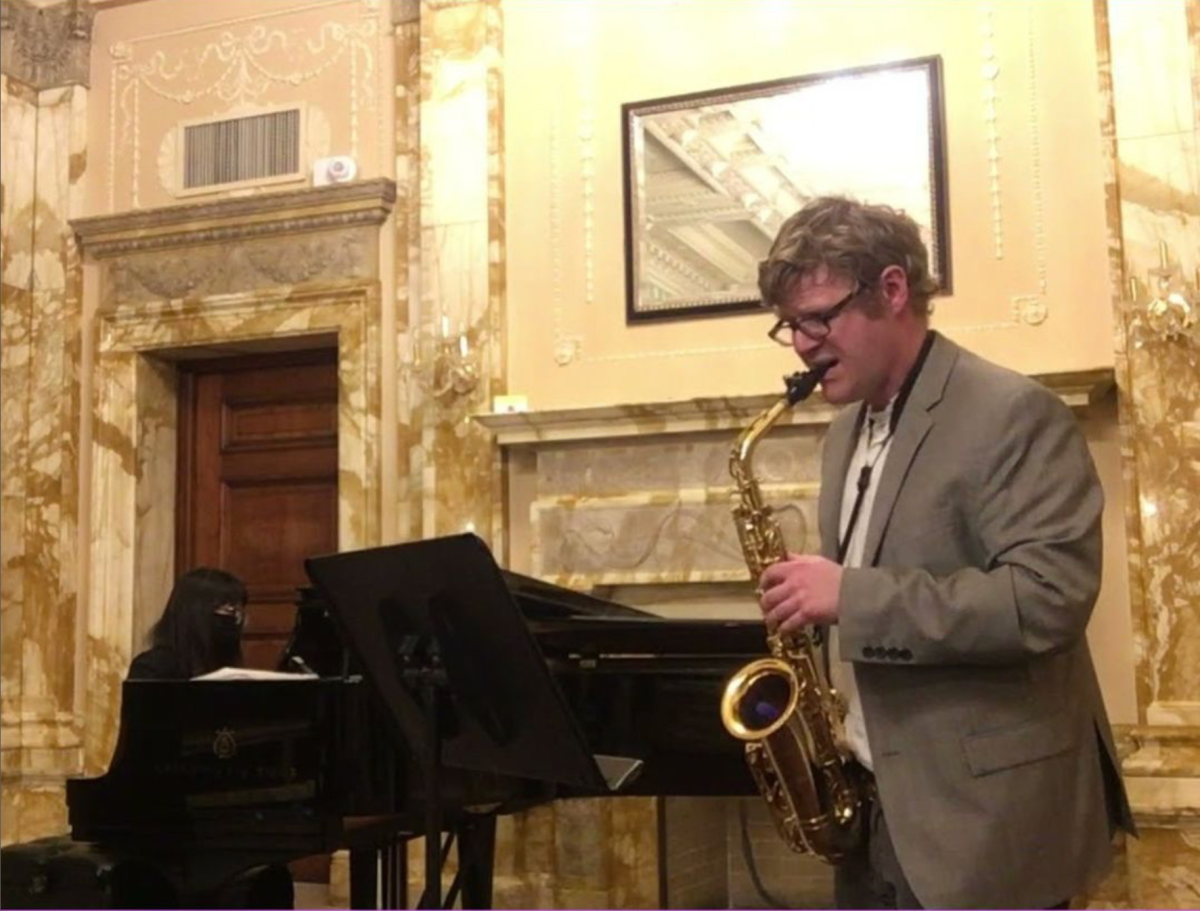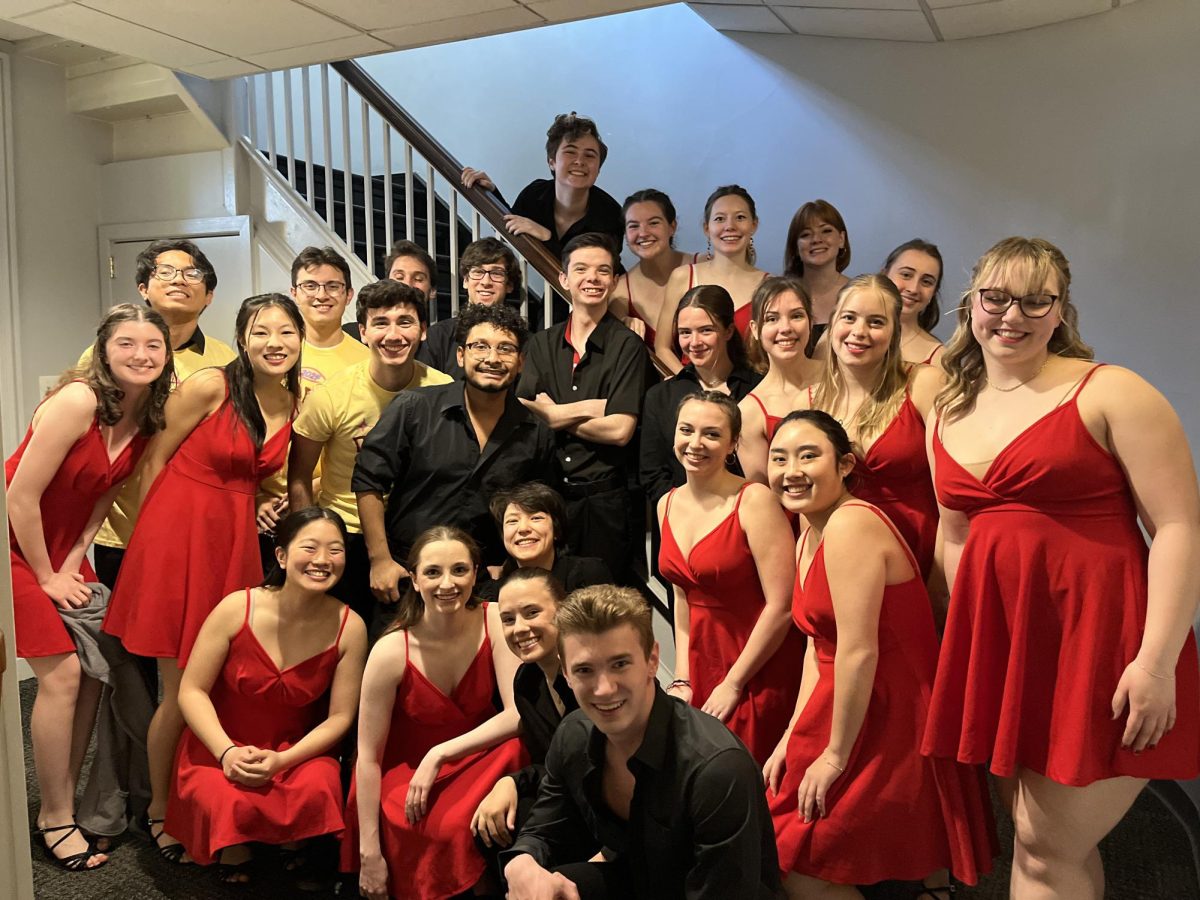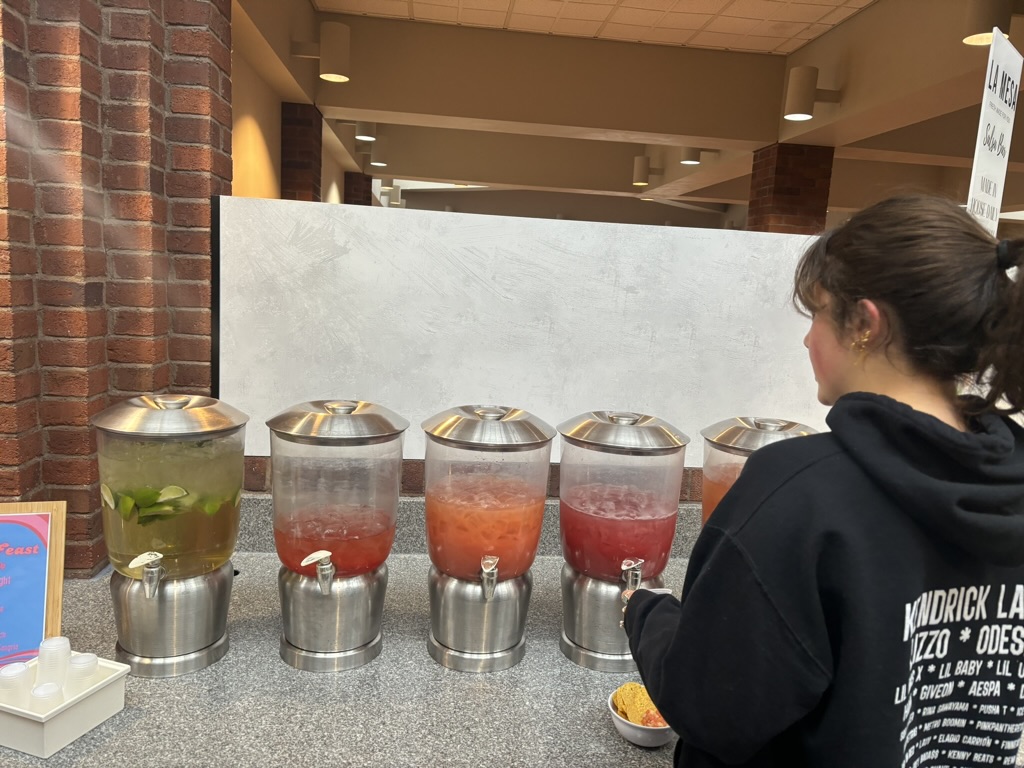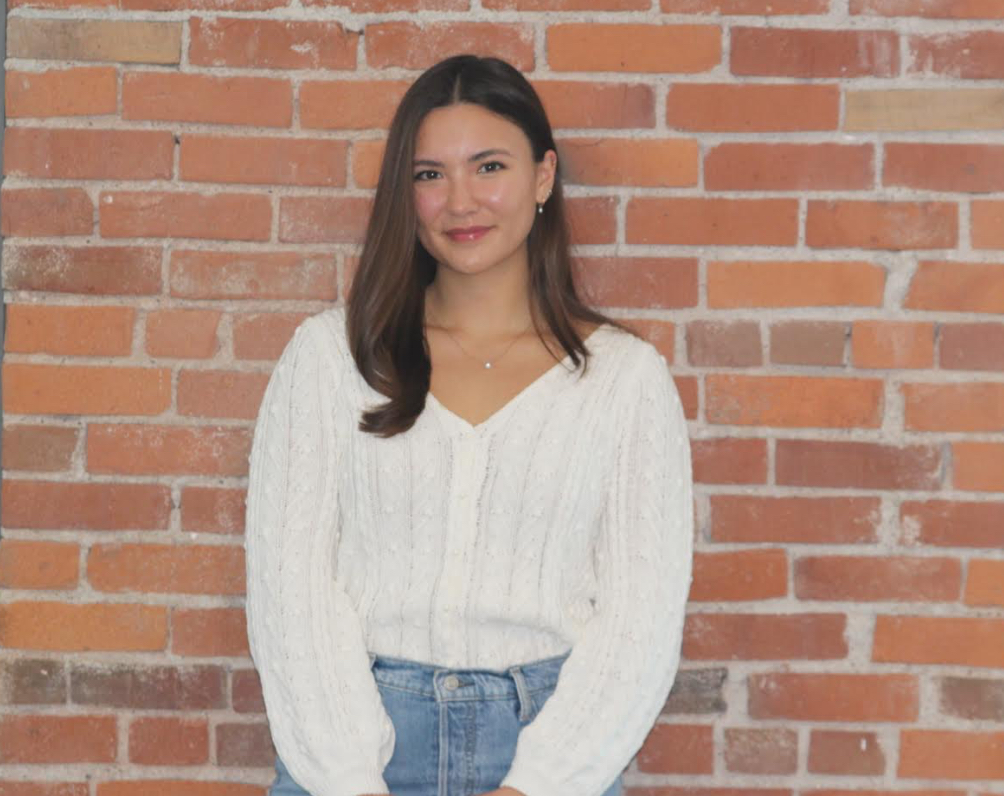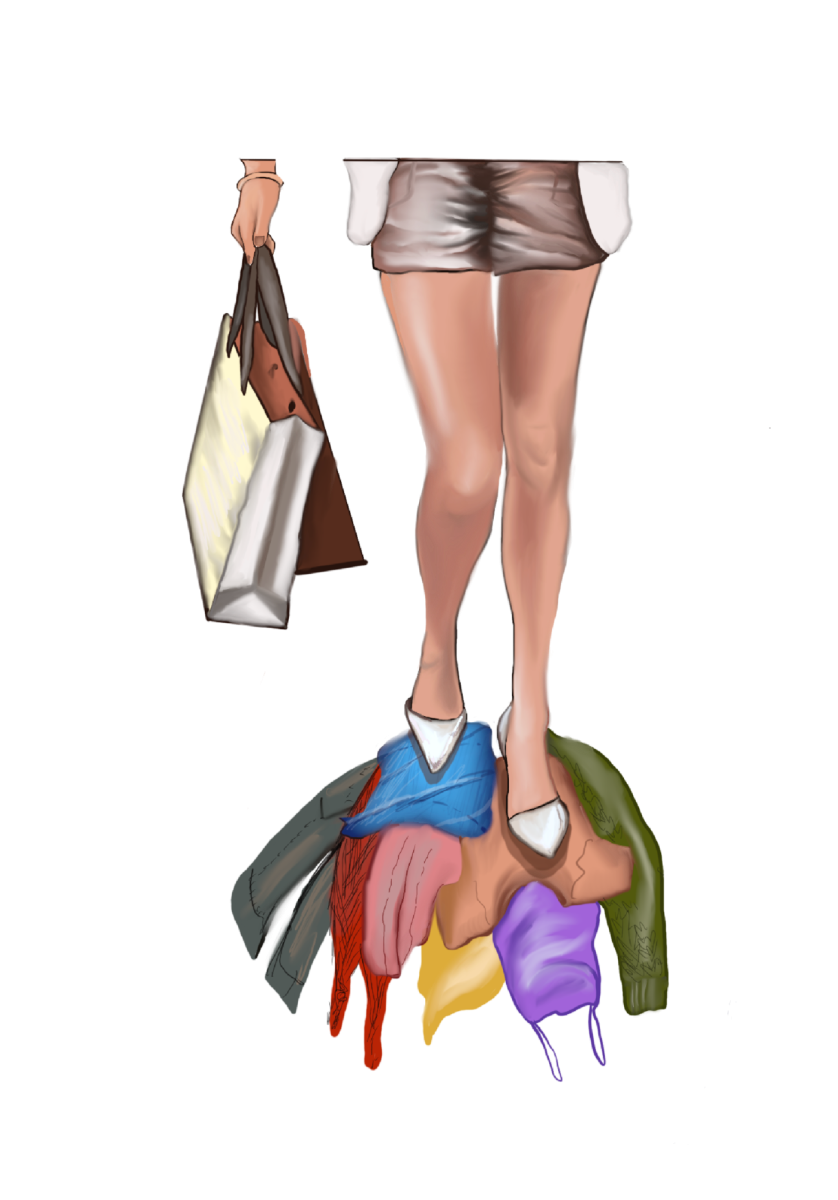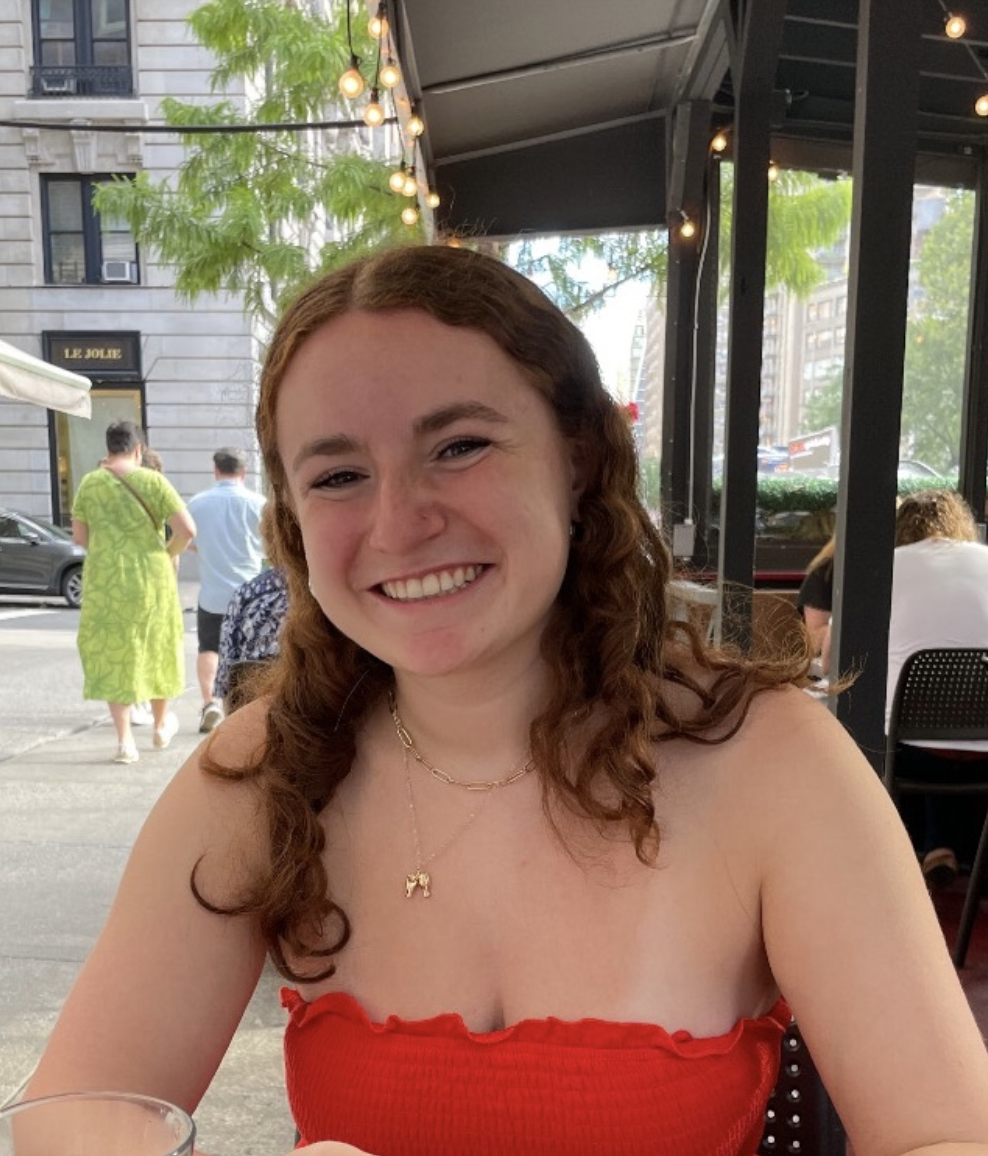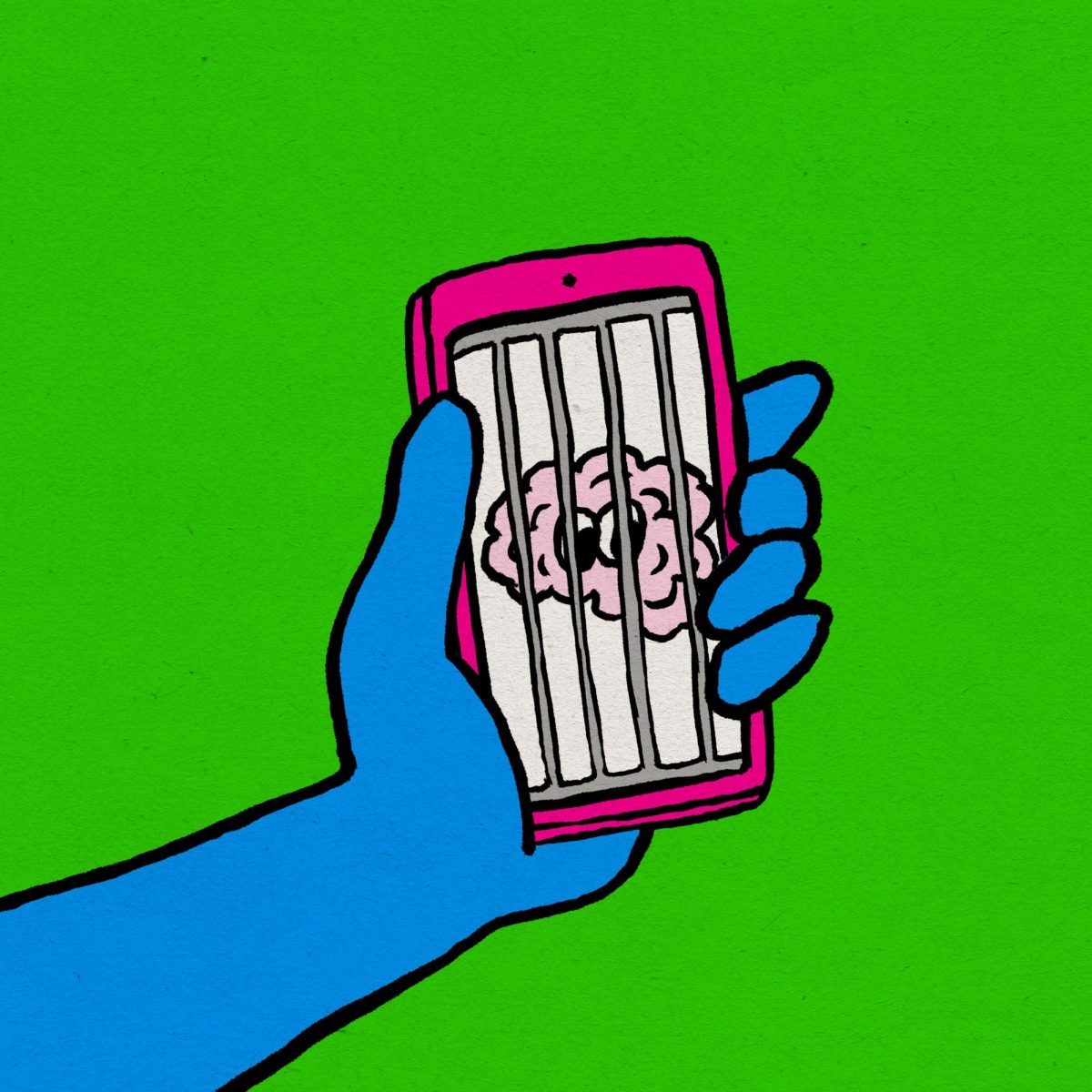As a steadfast rule, the Case Library is Colgate University’s resident home of relatively undisturbed silence, where students can take solace in the noise-free environment and get caught up in their studies. On Feb. 22 and March 1, however, the solemn quiet was replaced by the sweet sounds of jazz music as Colgate’s Live Music Collective (LMC) hosted the first two concerts of its Jazz in the Library series with performances by the Brian Stark Trio and Remedy.
The Live Music Collective, founded by Director of Research for the Library System and Associate Professor in the Libraries Joshua Finnell and Associate Professor of Physics and Astronomy Jeff Bary, is a group of Colgate faculty members and students committed to enriching campus life with live music experiences. Kara Rusch serves as a jazz liaison for the LMC and has been in charge of booking jazz gigs for the library series since the inaugural series last year.
According to Rusch, the main point of contention when scouting jazz bands to potentially perform on campus is finding a band that will be the right fit for the job.
“There are so many factors to consider when booking gigs,” Rusch said. “Is it a good fit musically? Is the band or are the musicians reliable? Can Colgate afford them? Can we find a date that works with all parties?”
The ultimate goal is for all involved to have a positive and interesting experience that hopefully expands one’s musical universe. The ideal situation is when artists are willing to interact with students and students can connect with them.
Thomas Heberer, a trumpet player for Remedy, actually came to Colgate a day early so he could contribute to Brian Stark’s Friday morning jazz improv class. Heberer and the students were able to work together during the class and some of those students were in attendance at Remedy’s library concert.
When it comes to jazz, Rusch knows how to find that right fit. She has years of experience with jazz curation here at Colgate, including years working on a pair of WRCU radio shows, one called “Slim’s Spins” and the other hosted with English Professor Michael Coyle called “Slim and Him” (catch it live Monday nights 4 p.m. to 7 p.m.).
Last semester, that ‘right fit’ came in the form of the Charlie Ballantine Trio, who played a well-received show in the library last October. This show marked a return to Colgate for Ballantine, who served as the first performer in the library jazz series last March in a solo gig.
The Brian Stark trio’s 45-minute long performance on Feb. 22 marks only the second time the group has played together, but the three-man group has such a wealth of jazz experience that this surprising fact is impossible to discern when listening to them play. The group is led by saxophonist and Visiting Assistant Professor of Jazz Studies Brian Stark, who is backed by a rhythm section of Mark Shiner — Colgate’s current Catholic campus minister — on drums and Rich Mollin on bass guitar. The group played a set that mostly consisted of jazz classics, such as Chick Corea’s “Windows,” Diana Krall’s “How Deep is the Ocean?” and The All-Star Marching Band’s “The Second Line.”
Drummer Mark Shiner’s passion for the instrument dates back to when he was just five years old.
“I started playing at age five,” Shiner said. “My parents had both grown up very poor and had decided that they wanted me, their child, to have the privileges that they didn’t have, so they asked me what instrument I would like to play, and I said drums.”
Shiner explained that his parents were not crazy about him playing drums and they initially attempted to encourage him toward another instrument, such as guitar. After struggling to find a teacher for either guitar or drums, Shiner was eventually paired with a local teenager for lessons.
“Eventually, [my parents] found a young guy who was 17 years old and teaching at the local music store, so they gave me a provisional teacher,” Shiner said. “They said, ‘if he works on it over the next month, he’ll keep going.’ And so I kept going.”
Shiner also brings a wide array of drumming influences to the table, outside of the traditional jazz canon.
“The first drummer I ever noticed was Peter Criss from Kiss,” Shiner said. “Then, my drum teacher told me to listen to John Bonham from Led Zeppelin, so I listened to him eventually, probably [in the] seventh grade. Some friends told me about Rush, and I started paying attention to Neil Peart. Elvin Jones was the first jazz drummer that I really loved, and I continue to love his playing to this day.”
Professor Stark also references Miles Davis as a foundational influence on his approach towards playing music and his understanding of playing in the moment by embracing uncertainty. He cites “Sketches of Spain,” “Birth of the Cool” and “In a Silent Way” as some of Davis’s most formative albums.
The performance, with its seemingly loose boundaries and improvisational style, followed a tried-and-true format.
“Most of the songs we played follow the head-solo-head format, in which I begin by playing the melody [the head], then we take turns improvising solos over the structure of the melody and then I finish by playing the melody again at the end,” Stark said. “It’s a little tricky, though, because I often improvise elements of the melody, such as varying the rhythm or adding fills, and, conversely, our improvised solos are usually made up of phrases that we’ve learned or developed and practiced, like a vocabulary. So there’s always an element of both improvisation and planning working together at the same time in a concert like this.”
While the Brian Stark trio’s style is more of a traditional form of jazz, Remedy, who performed on March 1, gave a 45-minute performance that consisted of a more unique take on jazz music. Normally a trio (drummer Joe Hertenstein couldn’t make the show due to issues in international travel), the duo that performed in Case Library’s fifth-floor flex room consisted of German trumpet player Thomas Heberer and New York native bass guitarist Joe Fonda. Both bring extensive musical histories to the table: Heberer has recorded with various ensembles and as a solo musician since the 1980s, while Fonda has recorded with esteemed artists such as Wadada Leo Smith and Anthony Braxton throughout his long career as both a band leader and sideman in a musical group. The duo played original avant-garde compositions, including “Like No Other,” a slow, brooding and heavily experimental piece, “Still Looking for the Lake” and a piece called “Bright Lights Opus No. 5.”
At the moment, there are no further plans for the Colgate Live Music Collective to host any more jazz concerts in Case Library for the remainder of the semester, but the group remains on the lookout for exciting jazz bands to bring to the Colgate community in the future.
The Brian Stark Trio plans on continuing with local gigs on the weekends with a Saturday series of performances at Hamilton’s own Palace Theater. They also plan on expanding the trio; their Saturday performances will include pianist Rick Montalbano and trumpet player Jeff Stockham.
Remedy, likewise, has its eyes on the future. Heberer and Fonda will be rejoined by their drummer, Joe Hertenstein, as they prepare for an upcoming tour of Europe that will commence later this month.


